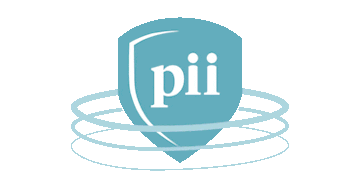Lifelong learning is essential to the professionalism and satisfaction of any individual employed in healthcare, nursing, or medicine.
Personal and professional growth are essential to healthcare workers, and it is incumbent on forward-thinking healthcare employers to provide opportunities for such growth and learning.
Corporate Culture is Key
Corporate culture is central to the success of any healthcare organisation.
While culture is not created exclusively from the top down, management and administration can do their part in assuring that a positive culture is propagated throughout a facility or agency that wishes to be high-functioning, successful, and compassionate towards staff.
A positive corporate culture in the healthcare milieu equally prioritises the well-being and satisfaction of both staff and patients.
In such a culture, all are encouraged to learn, grow, practice self-care, and otherwise tend to their personal and professional needs.
Within that culture, new staff members are guided and mentored, and those who provide such mentoring are acknowledged for their contributions.
Multiple Learning Opportunities
In terms of staff education and lifelong learning, the following are examples of ways in which a healthcare employer can participate in the learning process for nurses and other employees:
- Regularly provide high-quality opportunities for staff education, including grand rounds and other forms of formal group learning;
- Offer continuing education credits whenever possible;
- Encourage nurses and other staff to attend webinars, workshops, seminars, and conferences. Full reimbursement for such activities will promote the practice;
- Create opportunities for nurses, physicians, physiotherapists, and other skilled professional staff to share best practices, successes, and challenges in a stress-free learning environment;
- Adequate education is provided regarding new equipment, processes, software, and hardware;
- Utilise clinical nurse specialists or educators for the provision of on-site learning, nurse education, and expert consulting on complicated cases;
- Bear in mind that each individual has their own learning style, from kinaesthetic to verbal. Provide varying modes of education so that all staff can benefit from the experience;
- Provide sufficient precepting, mentoring, and onboarding for new clinical staff;
- Generously reward those who choose to serve as mentors or preceptors;
- Celebrate the success of those mentees who successfully complete assigned programs; and
- Management and administration consistently recognise and reward staff members who demonstrate dedication to lifelong learning.
Listen for the Need
A culture of lifelong learning in healthcare can be supported by employers who listen to staff members and make note of their expressed needs. If management and administration listen more than they talk, the message being delivered by employees is more likely to be heard.
If staff are regularly communicating to management that change of shift is the time when important information continues to fall through the cracks, a communicative and accommodating corporate culture will allow for a process that has a chance to improve that particular aspect of patient care. If the rate of nosocomial infections rises precipitously, thoughtful management will assure that appropriate education occurs in order to reverse this particular trend.
The need for education is generally glaringly apparent. Listening is key to identifying those needs and prudently acting upon them.
Lifelong Learning as Modus Operandi
If a healthcare facility treats lifelong learning as part and parcel of “what we do and who we are”, staff will be more likely to play along and participate. When the organisational modus operandi is such that learning is a given and those who wish to learn are supported and rewarded, this cultural norm will spread.
In a 21st-century healthcare environment, staff members can feel that the sands are constantly shifting beneath their feet. An organisational culture of lifelong learning decreases the stress of change, provides an outlet for the adoption of best practices, and encourages employees to ask questions, learn from one another, and internalise the benefits of learning throughout a long and successful career.




 New
New 

